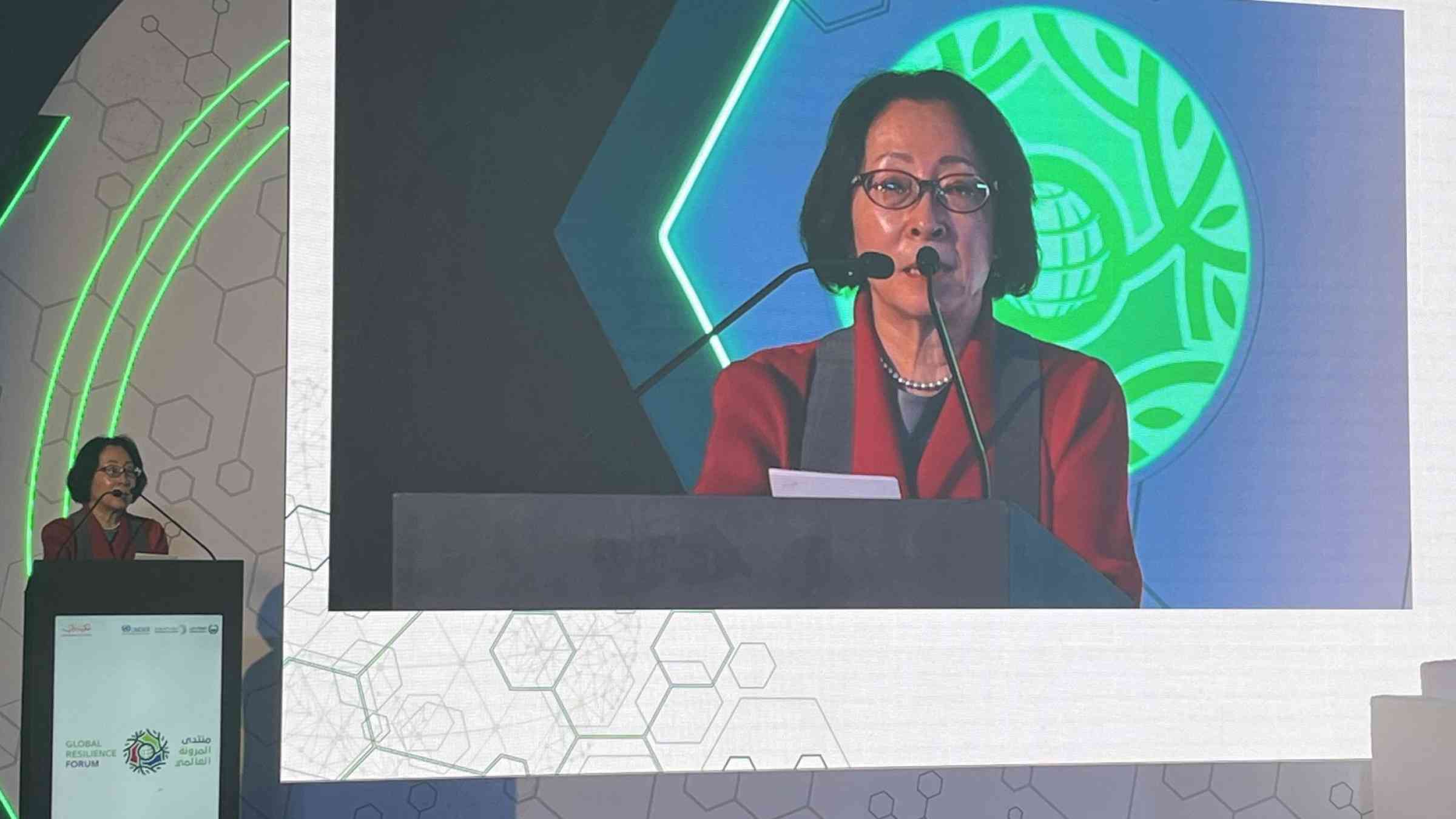National-local partnership key to strengthen urban resilience

A major international conference on urban development today called for an acceleration of national government-led approaches on climate resilience ahead of the upcoming COP28.
The Global Urban Resilience Forum’s Call for Action highlighted the need for appropriate budget allocations and a clear division of roles and responsibilities between various levels and actors.
The forum in Dubai, United Arab Emirates, issued the ‘Scaling Up Urban Resilience for a Changing Climate’ Outcome Document, ahead of COP28 to be hosted here in a few weeks.
The Call for Action said COP28 represents ‘a major opportunity to scale up climate-sensitive urban resilience and development’ and pointed to the potentially transformational role of both technology and data-driven approaches to inform decision making, including via the ISO37123 standard for resilient cities.
The statement called for a renewed focus on supporting local leadership and capacity to develop projects and access finance to build resilient infrastructure. It also urged greater investment in the Making Cities Resilient 2030 (MCR2030) global partnership, as well as other collective initiatives, to promote exchanges of experience, technical support, and solutions between regional, national, provincial/state, and local levels.
The Special Representative of the United Nations Secretary General for Disaster Risk Reduction and Head of the UN Office for Disaster Risk Reduction (UNDRR), Ms Mami Mizutori, said the Call for Action was ‘very powerful and robust’.
‘This Forum was the realization of a long-held ambition of UNDRR and Dubai City to bring the MCR2030 Resilience Hubs together,’ Ms Mizutori said. ‘The Forum has highlighted the critical role of local governments and indeed people. Without local resilience, you don’t have national or global resilience. The meeting also highlighted the importance of leadership – without leadership you cannot build resilience.’
Brigadier Exp. Ahmad Atiq A. Burqibah, Director of the Resilience Centre, Dubai Police, said: ‘The outcomes of this Forum have provided governments with the latest solutions and options in terms of urban resilience. We look forward to these recommendations being implemented.’
The first Global Urban Resilience Forum, organized as part of MCR2030, brought together 450 participants from more than 40 countries. Mayors and local leaders were joined by representatives from national government, the private sector, academia, and development partners.
The Call for Action encouraged MCR2030 Resilience Hubs – recognized global leaders in climate and disaster risk reduction – to increase their individual and collective commitments to assist other local governments to scale up their own ambition and action.
The hosts of both COP27 and COP28 – Sharm El-Sheikh and Dubai respectively – have been recognized as MCR2030 Resilience Hubs. Both have committed to sharing their experience to support other local governments. Dubai was the first city in the world to be accorded Hub status. In addition to Sharm El-Sheikh and Dubai, 10 other MCR2030 Hubs contributed to the forum.
MCR2030 is a United Nations-led global partnership that has mobilized 30 national governments, 10 national municipality associations, and more than 1,600 local governments, committed to strengthening local disaster and climate resilience.
The 1st Global Urban Resilience Forum was co-organized by UNDRR and Dubai Police (Resilience Center), in Dubai.

